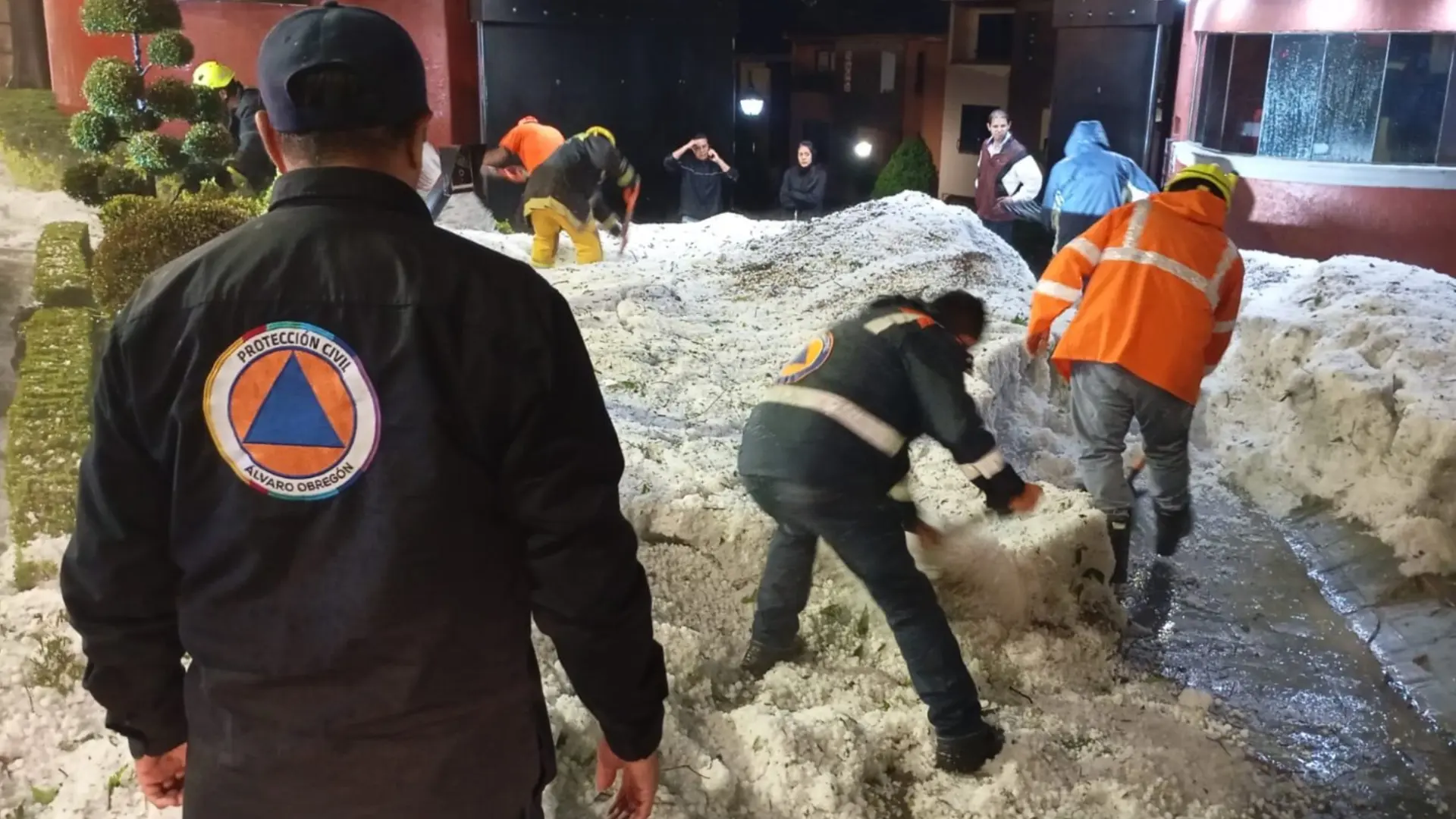
On Friday, August 30, 2024, Mexico City was hit by a devastating hailstorm that left the city in a state of disarray. The intensity of the storm was unprecedented, with hailstones the size of golf balls pummeling the streets and buildings, causing widespread damage and disrupting the daily lives of the city's residents.
The storm began in the early afternoon, with heavy rain and hail quickly accumulating on the streets. In the neighborhoods of Calzada de Las Águilas and Cerrada Barranca de Tarango, located in the Las Haciendas area, the hail piled up to a staggering height of over 1 meter (3 feet), effectively paralyzing the area.
The flooding caused by the intense rainfall and hail was equally severe, with some areas reporting flood depths of up to 50 centimeters (19.6 inches). Emergency response teams from the Mexico City Water System (Sacmex) were immediately dispatched to address the numerous cases of flooding, with 17 incidents reported in the boroughs of Tlalpan, Gustavo A. Madero, Cuauhtémoc, Venustiano Carranza, Miguel Hidalgo, Azcapotzalco, and Magdalena de las Contreras.
The sheer force of the hailstorm left a trail of destruction in its wake. Vehicles were stranded on the roads, with some trapped in the thick layer of hail that blanketed the streets. Businesses and homes were damaged, with broken windows and debris scattered across the affected areas.
Meteorologists have attributed the intensity of the storm to a combination of factors, including the city's unique geographic location and the ongoing effects of climate change. Mexico City's position in a high-altitude basin, surrounded by mountains, can exacerbate the formation and intensity of thunderstorms, leading to the development of large hailstones.
Furthermore, the increasing frequency and severity of extreme weather events, such as this hailstorm, are a direct consequence of the global climate crisis. As temperatures rise and weather patterns become more erratic, the risk of these types of catastrophic events occurring in urban centers like Mexico City is likely to increase.
The aftermath of the hailstorm has been a testament to the resilience and community spirit of Mexico City's residents. Emergency services and local authorities have been working tirelessly to clear the streets, restore power and water services, and provide aid to those affected by the storm. Neighbors have come together to help one another, demonstrating the strength and unity that characterize this vibrant metropolitan area.
As the city begins the process of recovery and reconstruction, it is clear that the lessons learned from this event will be crucial in shaping future preparedness and disaster response strategies. The need for comprehensive infrastructure planning, improved early warning systems, and proactive measures to mitigate the impacts of climate change has never been more apparent.
In the face of this meteorological catastrophe, Mexico City has once again proven its ability to overcome challenges and emerge stronger. The city's determination to bounce back and rebuild will undoubtedly serve as an inspiration to communities around the world that are grappling with the realities of a changing climate and the increasing frequency of extreme weather events.